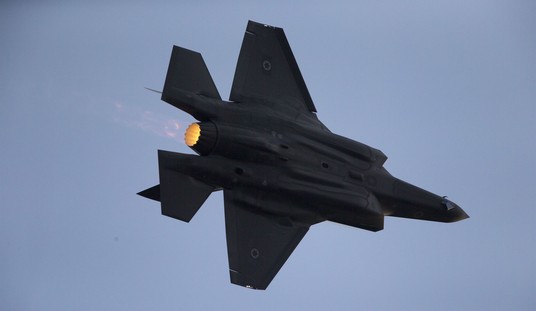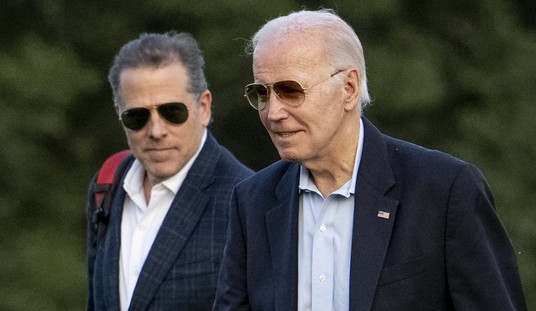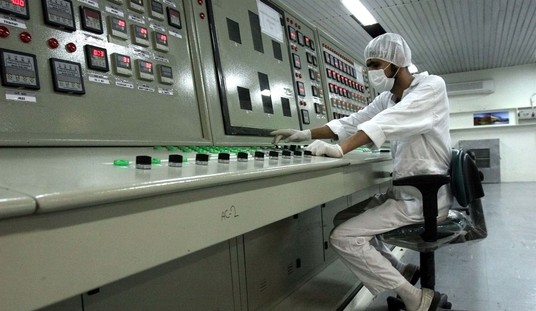by Ron and Allis Radosh
At the AIPAC final session this morning, the 14,000 delegates heard two powerful speeches. The first was delivered by Robert Menendez, the Democratic senator from New Jersey and chair of the Foreign Relations Committee, and the second was given by the prime minister of Israel, Benjamin Netanyahu. He came to AIPAC a day after his meeting with President Barack Obama, Secretary of State John Kerry, and others in the administration.
Netanyahu’s speech took place not only after his meeting with the president, but two days after President Obama, in his interview with Jeffrey Goldberg, publicly chastised him. At that meeting, the president took what Goldberg termed a “sharper view.” Goldberg:
“[Obama argued] that if Netanyahu ‘does not believe that a peace deal with the Palestinians is the right thing to do for Israel, then he needs to articulate an alternative approach.’ He added, ‘It’s hard to come up with one that’s plausible.’”
Netanyahu’s speech was made within that context. Without specifically addressing the president’s remarks, Netanyahu made it clear that it was both in the United States and Israel’s interest to maintain our alliance, and to stand together as one in addressing the threats facing both democracies. But when it came to specifics, both he and Menendez made clear their disagreement with Obama on one critical issue — Obama’s claim that he was right to “to fight a congressional effort to impose more time-delayed sanctions on Iran just as nuclear negotiations were commencing.”
He came to draw a red line, Netanyahu told AIPAC, “between life and death, right and wrong,” between the “blessings of a brilliant future and the curses of a dark past.” Israel, he stressed, was a humane, compassionate nation and a force for good in the world, one that comprehended the dividing line between “decency and depravity.” He recounted how Israeli field hospitals treated Palestinians from Gaza and refugees from Syria, while Iran sends rockets, terrorism and missiles abroad, executes political prisoners, and represses millions in the brutal theocracy run by the mullahs.
Quoting the head of Hezbollah, who said “Iran loves death and Israel loves life” and that was why Iran would win, Netanyahu responded that the first part of his statement was correct, but the second was wrong — Israel would win that fight.
Turning to Iran’s nuclear program, he asked how Iran can claim it wants only nuclear power while they are building ICBMs that could reach the United States and carry a nuclear payload.
Netanyahu presented Iran’s program as a danger both to the U.S. and to Israel, and why the goal is to get rid of its stockpiles, its centrifuges, and its heavy water reactors. All of those are not needed for electricity, and only for a military nuclear capability.
The world powers — and clearly he included the United States — seemed content, he said, with leaving Iran with the capacity to develop a nuclear weapon. Iran would then be able to rapidly develop that goal if an agreement fell apart, and could do so as the world looked elsewhere.
As the leader of Israel, he said he would see to it that the Jewish people would “never be brought to the brink of extinction again,” and that he would do what was necessary to defend “the Jewish state of Israel.”
Of course, he said — addressing both Kerry’s argument and Obama’s — Israel wants diplomacy to succeed. But Iran’s threat, he cautioned, “could not be eliminated by any agreement at all,” only one “that forces Iran to dismantle its nuclear capability.”
That goal could be achieved not by relieving pressure on Iran, but by adding pressure. He said Iran came to the table only when pressure was applied, and only more pressure — not less — would get them to abandon their goal of military nuclear capability. Lessening sanctions and pressure would make war more likely. “The greater the pressure on Iran,” he said, “the smaller the chance that force will have to be used.”
On the issue of negotiations with the Palestinian authority, Netanyahu agreed that peace would be good for both sides. It could lead to developing ties with the other Arab nations, many of whose rulers realize now that Israel is not their enemy. They, in conjunction with the Gulf states, would catapult the economic and social development of the entire region forward, resolving major problems of both water supply and energy.
On that point, he was agreeing with the argument made earlier by Secretary Kerry. The lives of millions in the Middle East, he said, would be made better.
Netanyahu’s goal was a durable peace obtained by mutual recognition of both a Jewish state and a Palestinian one, in which the rights of all citizens would be guaranteed. But for that to work, the Palestinians had to “stop denying history,” and must be “prepared to recognize a Jewish state,” since territorial issues could be resolved but the right of the Jewish people for a state of their own was something that was beyond dispute. The Palestinians had to abandon the fantasy of flooding Israel with refugees or amputating the country, giving regions that were part of Israel back to the Palestinians. They had to offer “no excuses and no delays,” Netanyahu stated, and thus had to offer recognition to a Jewish state.
That might take decades to filter down to the Palestinian people, and thus any agreement had to guarantee long-term security arrangements on the ground that would protect both Israel and the peace treaty. Israel must, he said, “look for the best and prepare for the worst.”
Netanyahu said that knowing that previous international peacekeepers left when the going got tough, and proved ineffective. He realized that peace would come under attack from Hezbollah, Hamas, and Iran, and thus they needed a force with which to defend their own Jewish homeland.
“I’m charged with protecting the security of my people, and I will never gamble with the security of the one and only Jewish state.” That force would be the IDF, since they would fight to defend their own homeland — unlike the so-called international peacekeepers who withdrew when threatened.
Turning to the BDS movement (Boycott, Divestment, and Sanctions) he quipped that its letters should really stand for “Bigotry, Dishonesty, and Shame.” That movement, he said, would fail just as had the Arab boycott in Israel’s earlier days. But it needed to be vigorously opposed, because it was bad for peace and was just plain wrong. Its gullible fellow-travelers were supporting a movement whose leaders sought the dissolution of Israel, not peace or reconciliation. Its effect would be “to set back peace by hardening Palestinian positions.”
Moreover, BDS was “morally wrong.” Israel is a healthy democracy, in which its citizens regularly dissent and loudly make criticisms of Israeli policy within the country. It has a free press and protects all religions, including Christians, who are under attack elsewhere throughout the region. BDS was not about criticism, but is an attempt to paint Israel as an illegitimate state, and is “nothing but a farce.”
At a time when other nations in the Middle East were sending academics to prison for their beliefs and hanging gays on cranes in public squares, BDS only called for sanctions on Israel, a nation in which professors are free to say and teach anything they want. It is the only nation that has full rights for gay people, has had women head three branches of government, and has a free press.
How, he asked, “can anyone fall for the BS in BDS?”
Netanyahu said he was not surprised, because throughout history people believed the most absurd things about Jews, and the most influential people had always spread lies about the Jewish people. The lies had become “ingrained in their consciousness,” and were part of “the long and dark chapter of anti-Semitism.” BDS thus had to be treated as we treat any form of anti-Semitism — be exposed and condemned. He supported those who argue that the BDS movement itself should be boycotted, and he applauded those who work to stop the BDS movement from succeeding.
America and Israel, he ended, have to stand together on the right side of history.
His speech was interrupted at many points by huge applause, and by many standing ovations. The largely Democratic members of AIPAC stood together with Republicans in defense of Israel and in support of the prime minister, whom the left-liberals, the members of J-Street, and the opponents of Israel regularly attack as a reactionary, a hawk, and a danger to Israel.
Those writers, who have recently argued that AIPAC’s role is diminishing and would be proved irrelevant, were clearly shortsighted. Its members were committed to intense lobbying and to keeping up the pressure on behalf of Israel and against those who seek its weakening or demise.








Join the conversation as a VIP Member